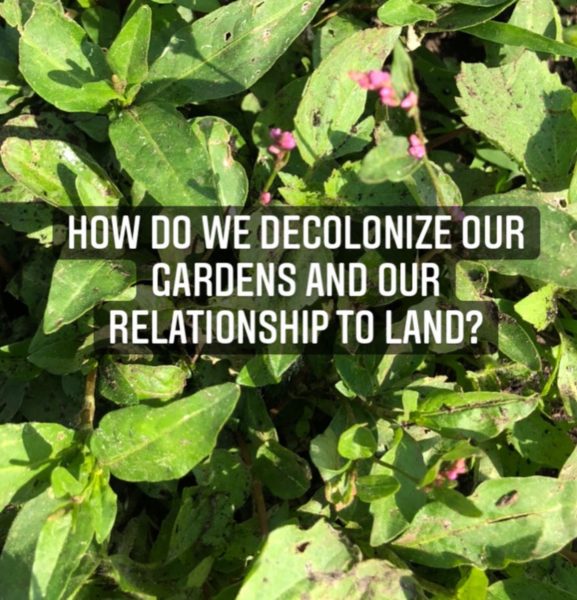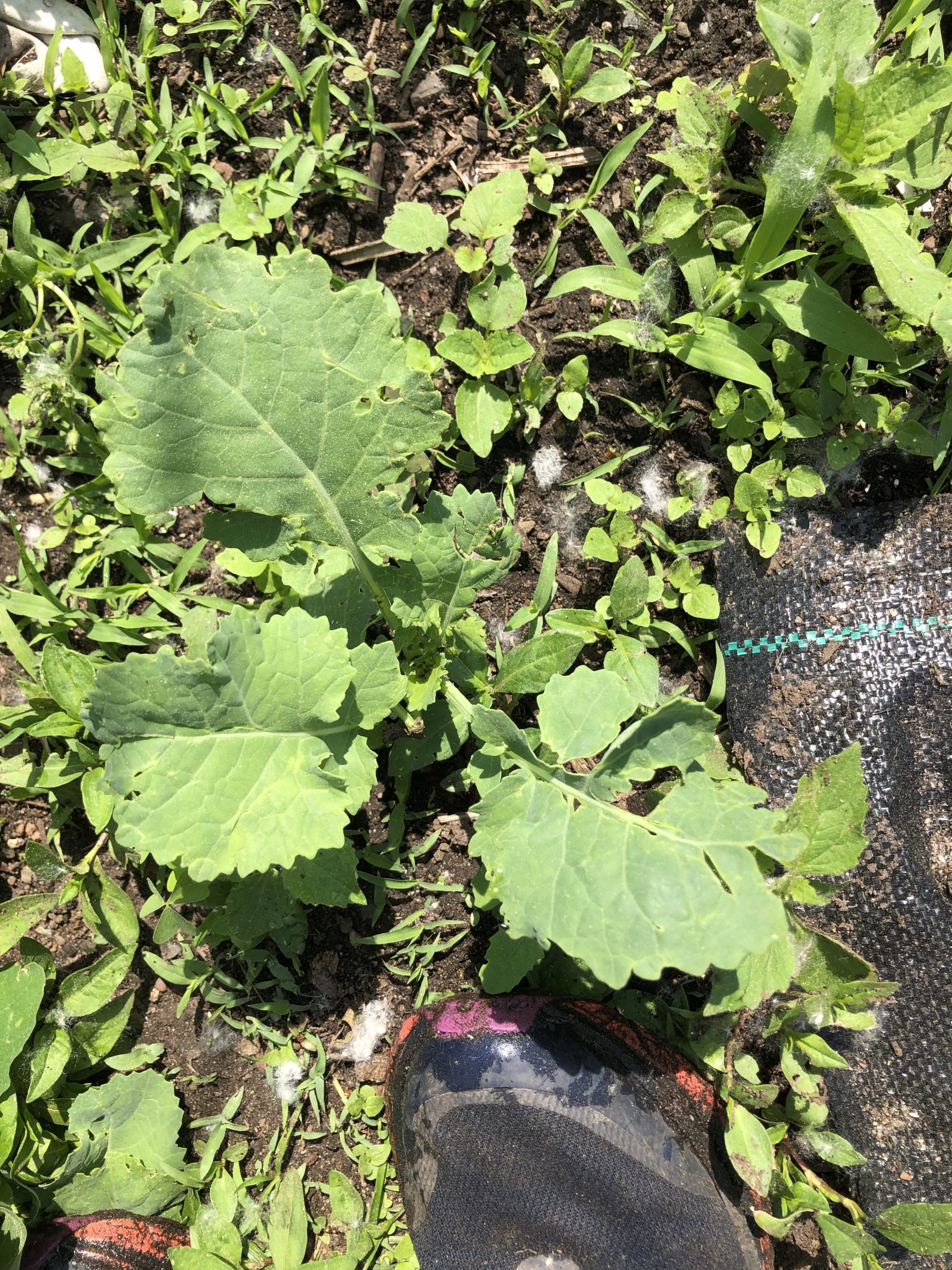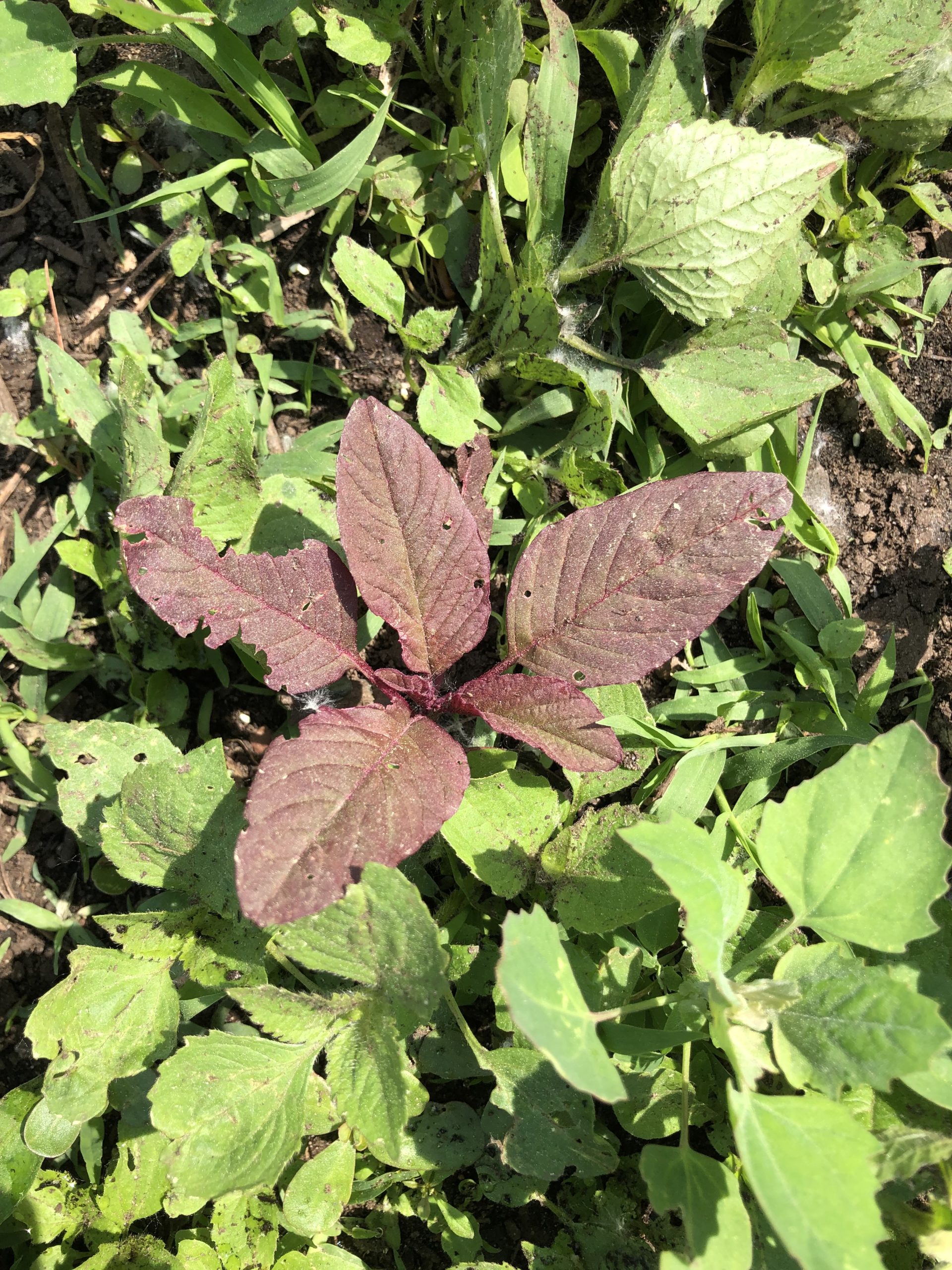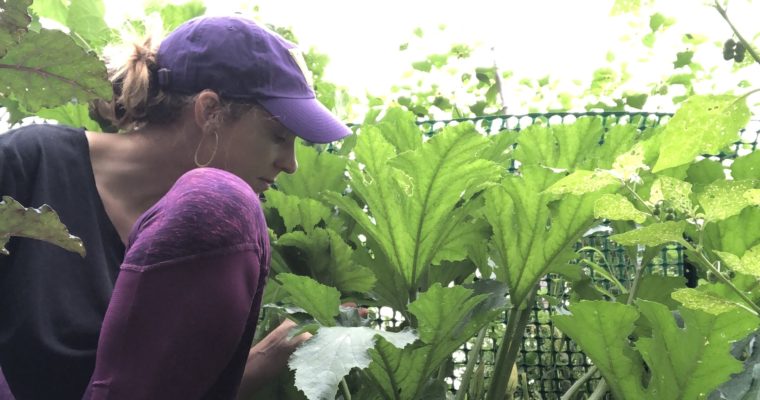
This morning I got curious about the “weeds” in my community garden at Westmoor Park, in West Hartford, CT. My expectation that I would come in and have my plants thrive, ignoring the plants already here, is a form of colonialism. I want to shift that mindset and I see looking closely as a first step in peeling back the layers to reveal new understandings.
I had already noticed the volunteer squashes and mint, which I recognized. According to a plant identifier app the squashes are winter squashes, like pumpkins or acorn squash. What this tells me is that some of this fruit was left on the vine or rotted in the garden and the seeds survived over the winter and sprouted this spring in the rich soil. I am excited to see how they turn out and I am grateful to the previous caretake of this land to have left such a gift.

I’ve also left the bunches of mint I’ve noticed. This is a pleasant surprise since I’ve had trouble growing mint at home and I used it in all my summer salads and fritters. But I was curious about all the other plants I didn’t recognize. And I discovered a lot!
Ragweed seems like a verifiable competitive bully with problematic pollen.
There’s a lot of cabbage, which I haven’t grown, so I’ll see how those turn out.
There’s red amaranth, which is beautiful and the seeds are used in cooking or can be used to make grain. I’m excited about this one.
There’s also white goosefoot, which I probably won’t test until I learn more, since some varieties are edible and others are poisonous.
I also found “Oriental Lady’s Thumb” – seriously not excited about this name. Some sites say it’s an invasive weed in New England, which it definitely seems to be in my garden. But I also found sources that say it’s edible – the full plant.
Getting to know what’s already there helps me to understand the land and work with it instead of in opposition to it. I know I have a lot more learning and reflecting to do. It reminds me of Robin Wall Kimmerer’s discussion of gifts, which come to you through no effort of your own.




